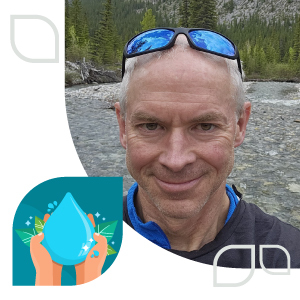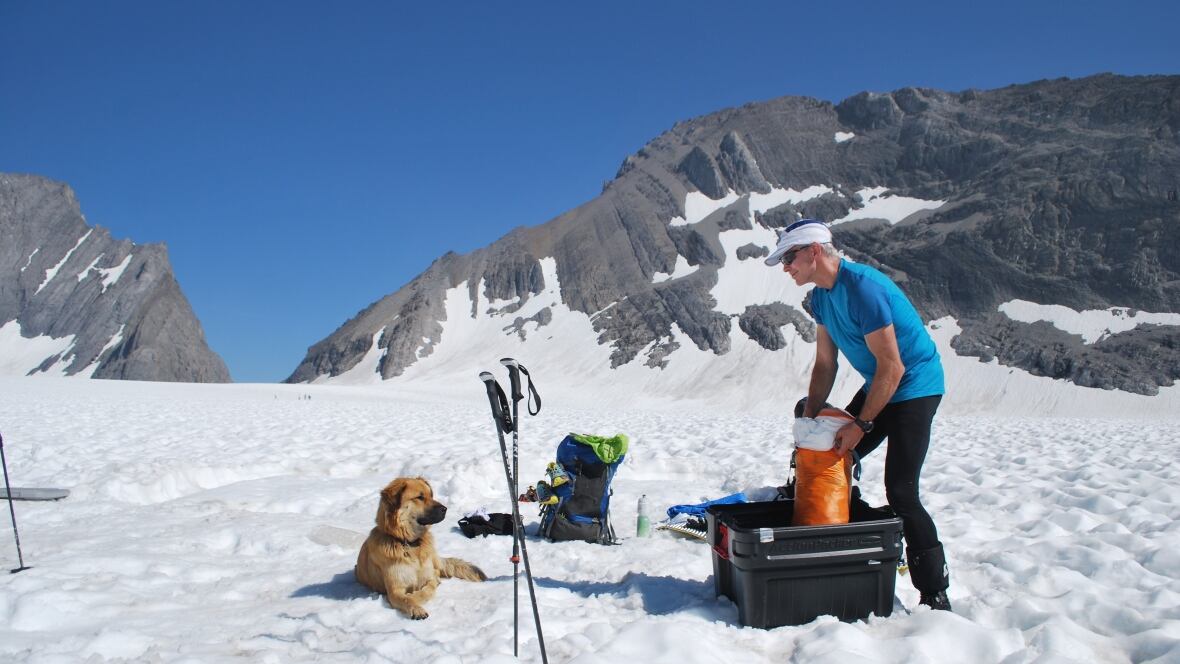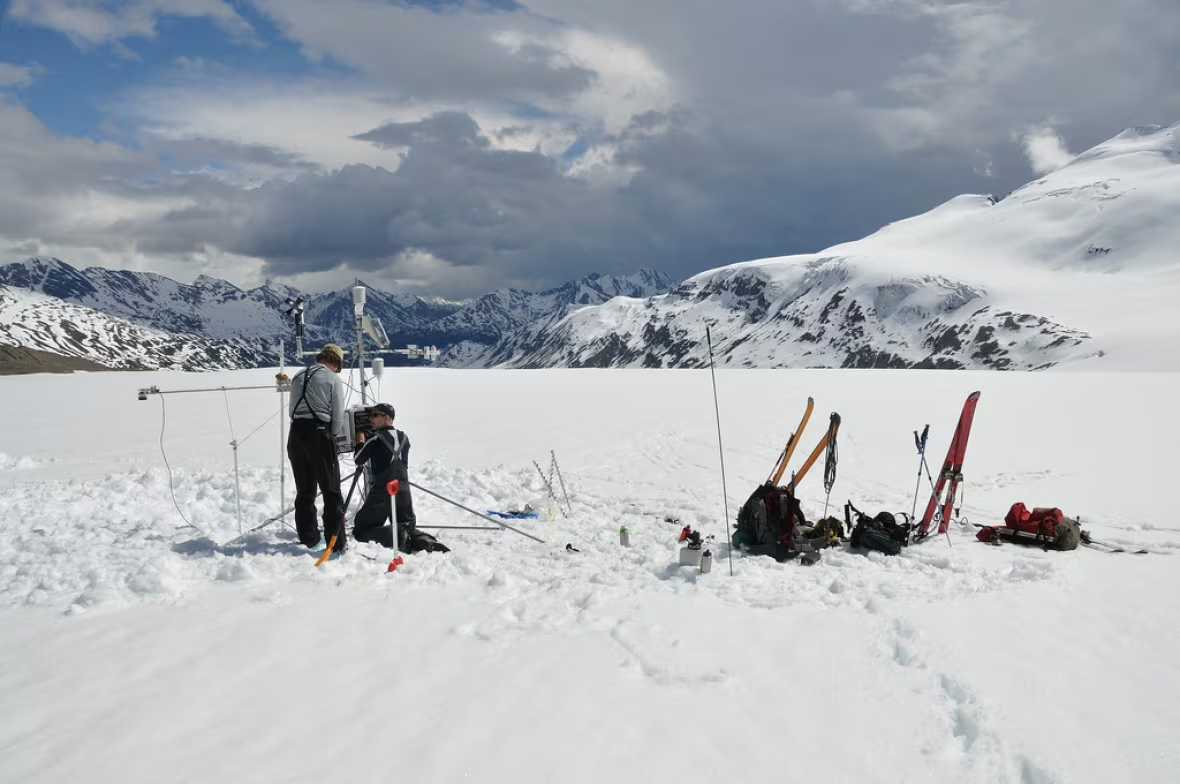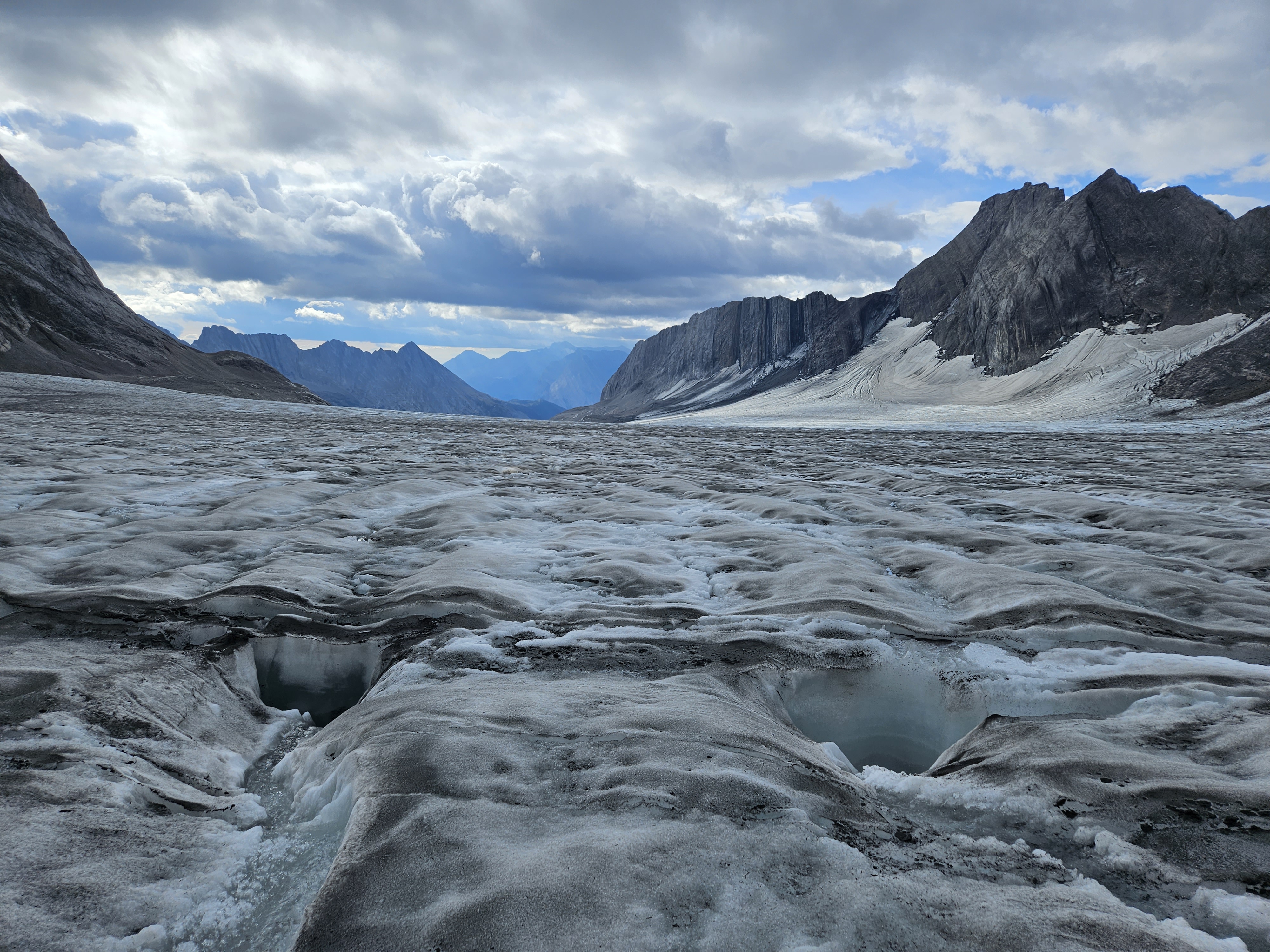A journey shaped by ice
Profile of Shawn Marshall
A journey shaped by ice

Dr. Shawn Marshall is a climatologist and glaciologist who held the Canada Research Chair in Climate Change from 2007 to 2017 at the University of Calgary, where he taught for over 20 years in the Department of Geography.
Originally from Ontario, Shawn Marshall is a physicist at heart, and it took him some time to discover the world of glaciers. It was while he was modelling the climate of the last Ice Age as a summer student at the University of Toronto that he came to understand the importance of glaciers within the climate system. He left for Western Canada to pursue a doctorate in geophysics with Dr. Garry Clarke at the University of British Columbia, embarking on an effort to develop models of glacier and ice sheet dynamics within global climate models to better understand the past, present, and future of the world’s glaciers.
In 2000, he joined the University of Calgary, where he began two decades of glacier field research to improve and constrain models of glacier response to climate change. His work in the field took him to Greenland, Iceland, the Canadian Arctic, the Alps, and the Rockies, studying a range of cryosphere-climate and glacier-hydrological processes and documenting the importance of glacier change to water resources in Western Canada and to global sea-level rise.
Motivated by a fundamental understanding of our environment

In 2019, Shawn Marshall became the first Departmental Science Advisor at Environment and Climate Change Canada, a role created to strengthen the integration of science into government decision-making. He contributed to ECCC’s Climate Science 2050 report, which sets national priorities for climate research and guides adaptation and mitigation efforts in Canada, and to a wide range of strategic science directions within ECCC’s Science and Technology Branch.
“I chose to come work for the government because I felt I could make a difference by getting involved in larger teams, and on bigger projects with a national scope,” explains the climatologist. Shawn Marshall is now part of the Water Science and Technology Directorate at Environment and Climate Change Canada. He applies his expertise on glaciers to improve models of freshwater availability, a crucial issue in the context of seasonal water resource management and climate change. Glacier meltwater can also be a threat to water quality, as legacy contaminants such as DDT and lead melt out and run off.
Glaciers, “an endangered species”

Shawn Marshall has spent most of his life studying glaciers, understanding their movements, measuring their displacement, and investigating the factors behind their gradual disappearance. In a recent study, he reveals that some glaciers in western Canada and the United States lost 12% of their total mass between 2021 and 2024—melting twice as fast as they did 10 years ago. Winters with little snow, early heat waves, prolonged dry spells, and ash from forest fires, which darken glaciers and increase their heat absorption, are all aggravating factors.

“Glaciers are an endangered species,” he says. “Their visible and measurable retreat makes them powerful symbols of climate change. Working on glaciers is very emotional. You can see the changes; you can feel them. You can see the impact on people, as well—whether from rising sea levels or dwindling freshwater resources.”
“Glaciers are aesthetic and photogenic,” he adds, “and for many, these grandiose landscapes are significant.” For the glaciologist who has spent decades following the world’s glaciers, they are more than just adornments; they give us an accurate picture of the changes that we are facing today. The United Nations has designated 2025 as the International Year of Glaciers’ Preservation, a way of raising awareness of the impact of climate change on mountain and polar environments.
Science for the future
For Shawn Marshall, science is the basis of knowledge—it is a fundamental tool for understanding our environment and anticipating future transformations. “It allows us to establish long-term perspectives and make informed decisions to better prepare us for the future,” he says. Deeply fascinated by nature, he appreciates the privilege of working in a field that allows him to think about the future, beyond the short-term political noise which can be demoralizing and paralyzing.
Despite ongoing climate change and the accelerating decline of the world’s glaciers, he refuses to be pessimistic and persists in believing that nothing is irreversible. “It’s not too late for most of the world’s glaciers. The decisions we make now will determine how much ice survives the century.”